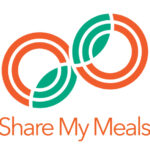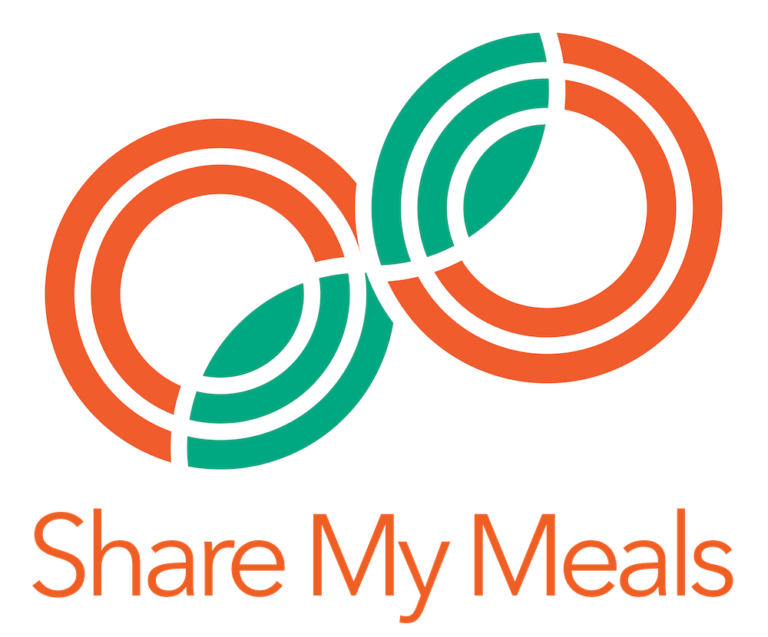How does Program work?
- Food recovery planning:
- Pre-planned: Food donors send weekly information detailing location, timing, and estimated quantity of surplus meals.
- Day-of: food donors upload in a Mobile App the quantity of meals to donate.
- Food recovery process:
- Meals are packaged and labeled by the food donor in non-disposable trays, to be completely eco-friendly.
- Each contains healthy meals for up to 5 people (one family).
- The trays are kept at proper temperature in fridge till the time of delivery, usually the same day within 2 hours after they were packaged.
- SMM volunteers or food supplier employees transport meals using insulated bags to ensure the respect of the cold chain.
- Meals are delivered to the Share My Meals recipients or to other food organizations within 60 to 90 minutes after pick-up.
- The SMM Mobile App allows the tracking in real time the time window between pickup and delivery of each tray allowing strict monitoring of the cold chain.The trays that cannot be delivered within this time frame are discarded.
- Food Distribution :
- Share My Meals carefully screens the recipients population to ensure the food will be exclusively distributed in respect of The Bill Emerson Good Samaritan Act requirements to food insecure individuals and families including:
- Families receiving the Supplemental Nutrition Assistance Program (SNAP) benefits.
- Families participating in other federal assistance programs, including Temporary Assistance for Needy Families (TANF).
- Families who are eligible for the public housing program.
- Families in need but not covered by any of the above.
- The program aims to provide support to any food insecure person regardless of race, ethnicity, background, faith, sexual orientation or circumstance.
- The recipients receive the meals on a rotation basis following a LIFO rotation algorithm and are contacted on the day of delivery to ensure they will be present to receive their delivery.
- The non-disposable trays are returned to one of the Share My Meals volunteers and washed in the commercial dishwasher of the food suppliers’ kitchen.
- Share My Meals carefully screens the recipients population to ensure the food will be exclusively distributed in respect of The Bill Emerson Good Samaritan Act requirements to food insecure individuals and families including:
Alignment with broader initiatives
- Our efforts are aligned with the US government, states (including NJ) and corporates initiatives (US Food Loss and Waste 2030 Champions which declared a 50% food waste reduction goal by 2030.
- Share My Meals is also consistent with the United Nations Sustainable Development Goals, in particular goal 12, which aims to ensure sustainable consumption and production patterns.
How to increase the Food Recovery for Donations?
- Education on the Federal and State Liability Protection
The Bill Emerson Good Samaritan Food Donation Act of 1996 (PDF, 207 KB) exempts food donors who make good faith donations of food to non-profit organizations that feed the hungry from liability for injuries arising from the consumption of the donated food.
- Understanding on the Federal agencies’ provisions
The U.S. Federal Food Donation Act of 2008 (PDF, 142 KB) specifies procurement contract language that encourages federal agencies and contractors to donate excess wholesome food to eligible non-profit organizations to feed food-insecure people in the United States.
- Information on the Enhanced Tax Deductions
By expanding and modifying the enhanced tax deduction, Congress has taken a significant step toward incentivizing additional food donations.
Example: A Food Donor donates potatoes that were purchased for $30 (basis value) and would sell for $100 (FMV), which would give him an expected profit margin of $70.
Under the enhanced deduction, he is entitled to deduct the smaller of:
(a) Basis Value x 2 = $30 x 2 = $60, or
(b) Basis Value + (expected profit margin / 2) = $30 + 70/2 = $65
In this case, the enhanced deduction would be $60.
The enhanced deduction is substantially higher than the general deduction, which is limited to the basis value of $30.
- Increase awareness on Food Safety Guidance for Food Donations
Together, the FDA Food Code and the Comprehensive Resource have the potential to be powerful tools to facilitate food donation. However, currently the FDA Food Code, which is the food safety resource most influential to state and local governments, does not include any instructions or guidance regarding food donations.
By contrast, the Comprehensive Resource For Food Recovery Program which contains useful information for parties invested in food recovery, has relatively little practical effect as a standalone document as it is not widely circulated and not updated frequently enough.
The lack of clear guidance around food safety for food donations hinders potential food donors from finding information about how to safely donate food.
We are here to help as we are in contact with the local and NJ health Departments to facilitate meals recovery while respecting the highest food safety protocols standards.





